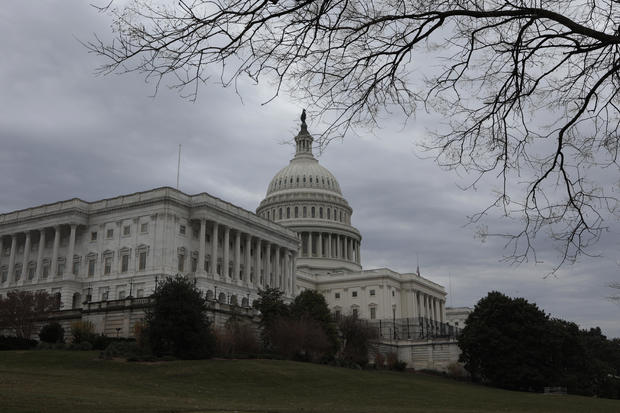The House select committee investigating the January 6 attack on the Capitol has agreed to defer requests for some Trump White House documents that the Biden administration argued should remain sealed. The committee is seeking documents and communications related to January 6, including records related to Trump's prepared and actual public remarks from November 3, 2020, through January 20, 2021. The Biden White House has overwhelmingly rejected executive privilege requests and given the committee the Trump-era documents it has sought. But the Biden administration agreed to shield some documents due to concerns they could compromise national security and executive privilege. In a letter to the committee, White House counsel Jonathan Su said President Biden "recognizes that Congress has a compelling need, in service of its legislative functions, to understand the circumstances that led to the insurrection that took place on January 6, and the extraordinary events surrounding it, in order to ensure nothing similar ever happens again." "The documents for which the Select Committee has agreed to withdraw or defer its request do not appear to bear on the White House's preparations for or of January 6, or on efforts to overturn the election or otherwise obstruct the peaceful transfer of power," Su wrote. "Accordingly, the Select Committee's agreement to withdraw or defer these documents, as well as the documents subject to the prior deferral, should not compromise its ability to complete its critical investigation expeditiously." The select comittee said in a statement that it "welcomed" Mr. Biden's decision to "clear the way for the production of another set of records." The committee noted that it has not withdrawn its request for "relevant records." President Trump on Wednesday issued a statement claiming the committee had "just dropped a large portion of their request for documents." Representative Liz Cheney, the vice chair of the committee, tweeted Wednesday that this was "false." "In fact, we're actively litigating to obtain White House records Trump is trying to conceal," she said. "We will not allow him to hide the truth about January 6th, or his conduct, from the American people." Trump is suing to stop the transfer of certain White House documents housed in the National Archives. Trump asked the Supreme Court last week to overturn the decision by a three-judge panel from the U.S. Court of Appeals for the District of Columbia Circuit rejecting his attempt to block the transfer. "The records of a former president are not distributed freely upon the conclusion of his term of office, even to Congress," Trump's lawyers told the court last week. "Except in extraordinary circumstances, records are protected from disclosure for a considerable amount of time after a president has left office." Since the former president filed his lawsuit, the National Archives revealed that it had identified over 1,500 pages pertinent to the committee's request. These include daily presidential diaries, the files of then-White House chief of staff Mark Meadows, multiple binders belonging to then-White House press secretary Kayleigh McEnany and White House talking points alleging voter fraud in the 2020 presidential election. Trump has since argued that about 750 of those documents, which are at the center of the current lawsuit, should remain confidential under claims of executive privilege. The records requests come as Trump's former adviser Steve Bannon has been indicted for refusing to comply with a subpoena before the committee. Bannon's lawyers have argued he was acting under instructions from the former president. "President Trump's counsel stated that they were invoking executive and other privileges and therefore directed us not to produce documents or give testimony that might reveal information President Trump's counsel seeks to legally protect," Bannon's lawyer said in October. The full House of Representatives voted this month to hold Meadows in contempt of Congress for refusing to comply with a subpoena as well. The matter has been referred to the Justince Department, which will decide on charges. Meadows' attorney told the committee that he assumed a responsibility to protect executive privilege before and after his tenure. The panel is expected to ramp up its work in the new year. Public hearings are expected to start this winter and stretch into spring, according to a source familiar with the committee's rough timetable. Their aim is to produce an interim report in the summer, followed by a final report before the November midterm elections. The House select committee, created by Speaker Nancy Pelosi earlier this year, is investigating the January 6 attack, when thousands of Trump supporters descended on the Capitol as Congress counted the electoral votes, a largely ceremonial final step affirming Mr. Biden's victory. Lawmakers were sent fleeing amid the riot, which led to the deaths of five people and the arrests of hundreds more. Trump, who encouraged his supporters to "walk over" to the Capitol during the Stop the Steal rally, was impeached by the House one week later for inciting the riot, but was later acquitted by the Senate. Robert Legare and Melissa Quinn contributed to this report.
